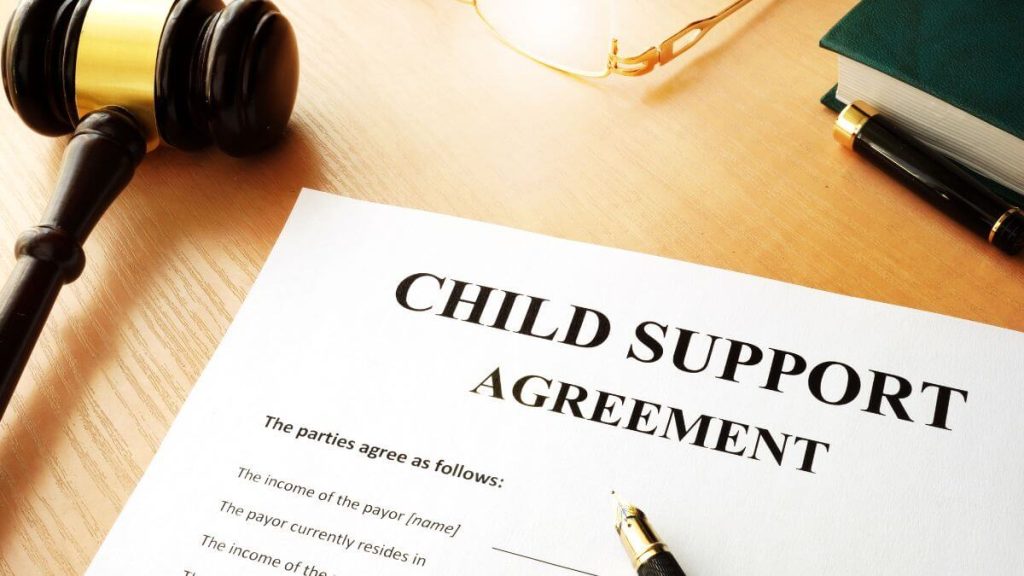Many parents in South Africa question whether their former partner’s second marriage will absolve them of their financial obligation to their kids. This is a frequently asked subject, particularly by parents who are experiencing financial difficulties or who believe that a new spouse should now contribute to the child’s upbringing. However, South African law makes it plain that a parent’s obligation to provide for their kid does not cease when the other parent gets married again.
This guide outlines your rights and responsibilities under the Children’s Act 38 of 2005 and the Maintenance Act 99 of 1998 in South Africa, as well as the legal actions you may take in the event that your situation changes. It’s critical to comprehend how remarriage impacts—or does not impact—current court orders, regardless of whether you’re paying or receiving support.
Understanding Child Maintenance in South Africa
In South Africa, child maintenance (or the duty of support) is a legal obligation placed on both biological parents. It ensures that children receive the care and resources they need for a stable upbringing — including food, housing, clothing, education, healthcare, and recreation.
These obligations are not dependent on marital status. Whether parents are married, divorced, separated, or were never married at all, they share responsibility. The law requires that both parents contribute jointly and proportionally to their financial means, income, and reasonable living expenses.
The guiding legislation includes:
- The Maintenance Act 99 of 1998, which outlines how maintenance orders are made and enforced.
- The Children’s Act 38 of 2005, which prioritises the best interests of the child in all legal decisions.
In other words, child maintenance is about the child’s well-being, not the parents’ relationship with each other.
Does the Other Parent Getting Married Automatically Stop Maintenance?
The short answer is no — you cannot stop paying child maintenance simply because the other parent has remarried.
Your duty to support your child continues regardless of your ex-partner’s marital status. South African courts have repeatedly confirmed this principle: a parent’s obligation to maintain their child is independent of the other parent’s household changes.
Why Remarriage Doesn’t Affect Child Maintenance
- The child’s right to maintenance is protected by law.
It exists independently of who the other parent marries or lives with. - A step-parent has no automatic duty to support the child.
Unless they legally adopt the child, a new spouse is not required to contribute financially. - The best interests of the child remain the top priority.
The court always acts to ensure that the child’s financial needs are met consistently.
Therefore, if your ex-spouse marries someone else, you must continue paying maintenance as ordered — unless you successfully apply to court for a variation.
What About Spousal Maintenance?
Sometimes, confusion arises between child maintenance and spousal maintenance. The two are distinct under South African law.
- Child Maintenance: Paid for the child’s benefit, regardless of the parents’ relationship or remarriage.
- Spousal Maintenance: Paid to an ex-spouse after divorce, usually for a limited period.
When Spousal Maintenance Can End
If you’re paying spousal maintenance, your obligations might change when the receiving ex-spouse remarries. Many divorce orders include a “dum casta” clause, which automatically ends spousal maintenance once the recipient remarries or cohabits in a marriage-like relationship.
The reasoning is that the new spouse is now expected to provide financial support.
However:
- This does not apply to child maintenance.
- Even for spousal maintenance, the court can vary, suspend, or cancel the order based on new evidence.
If your court order combines both spousal and child maintenance, only the spousal portion may be affected by remarriage — child support continues unaffected.
Can Maintenance Be Reduced or Varied Because of Remarriage?
While the other parent’s remarriage doesn’t automatically stop your payments, it can be a factor when reassessing financial circumstances. The court recognises that life situations change, and the Maintenance Court allows either parent to apply for a variation of the existing order.
You May Apply to Vary Maintenance If:
- Your income has decreased due to job loss or financial hardship.
- The other parent’s household expenses have significantly reduced (for instance, a new spouse contributes to shared costs).
- The child’s needs have changed — e.g., new school fees, medical costs, or reaching adulthood.
- There has been a material change in either parent’s living situation.
Important Legal Principle:
Courts rarely cancel maintenance completely, but they can adjust the amount based on verified changes in financial capacity and household circumstances.
For instance:
- If the receiving parent’s new spouse helps cover household costs, the court might consider this when calculating a fair contribution.
- If you remarry and have new children, the court will not automatically reduce your existing obligation. You remain responsible for your first child’s maintenance, and new dependents cannot prejudice existing obligations.
How to Apply to Vary or Stop Maintenance Payments
If you believe your circumstances have changed substantially, you must apply through the Maintenance Court — you cannot make changes on your own.
Step-by-Step Process
- Visit the Maintenance Court
- This is usually located at your local Magistrate’s Court, where the child resides.
- Ask for Form J107 (Application for Variation of Maintenance Order).
- Prepare Supporting Documents
- Proof of income (payslips, bank statements)
- Details of monthly expenses
- Proof of the other parent’s remarriage (if relevant)
- The existing court order
- File the Application
- Submit your completed form with supporting documents to the court clerk.
- Attend the Hearing
- Both parents will be asked to disclose their financial positions.
- The magistrate may request additional documents before making a decision.
- Receive the New Court Order
- If the magistrate finds that there’s a material change in circumstances, a new order will be issued — either reducing, increasing, or maintaining the same amount.
How Long Does It Take?
The process typically takes between one and three months, depending on the court’s workload and whether both parents cooperate.
The Consequences of Stopping Payments Without Court Approval
Stopping payments on your own can have serious legal consequences. Even if you believe the other parent’s remarriage justifies it, you must keep paying until the court officially changes the order.
Possible Penalties for Non-Compliance
- Arrears accumulation: Missed payments accrue interest.
- Garnishee orders: The court may deduct maintenance directly from your salary.
- Seizure of assets: Property or vehicles can be sold to recover unpaid maintenance.
- Criminal charges: You could face imprisonment for contempt of court.
South African law treats failure to pay maintenance as a serious offence. Always follow due process to protect yourself legally and financially.
Enforcement and Cross-Border Cases
If one parent lives outside South Africa, international laws still make enforcement possible.
The Reciprocal Enforcement of Maintenance Orders Act 80 of 1963 applies to certain countries, ensuring that South African court orders can be recognised and enforced abroad.
Similarly, if a parent living overseas fails to pay maintenance for a child in South Africa, local authorities can coordinate with foreign courts to recover funds.
Read more: Legal Aid South Africa: Services & Support Guide 2025
Practical Tips for Managing Maintenance Obligations
1. Stay Compliant and Communicative
Never stop payments without a valid court order. Maintain open communication with the other parent and keep records of every payment.
2. Use Legal and Mediation Services
If you’re struggling financially or facing conflict, seek help:
- Legal Aid South Africa – www.legal-aid.co.za
- Family Advocate Offices – www.justice.gov.za/fa/
- Maintenance Court Services – www.justice.gov.za/maintenance/
These services provide free or low-cost legal assistance for parents who cannot afford private attorneys.
3. Keep Financial Records Updated
Regularly review your income and expenses. This will help you present clear evidence if you apply to vary the maintenance order later.
4. Consider Mediation Before Court
Mediation can save time and stress. Many Maintenance Courts encourage parents to settle maintenance disputes through facilitated discussions before a hearing.
5. Prioritise the Child’s Best Interests
Even if your relationship with the other parent is strained, remember that maintenance ensures your child’s stability, education, and well-being.
Frequently Asked Questions
1. Can I stop paying maintenance if my child moves in with me permanently?
If the child starts living with you full-time, you can apply to the Maintenance Court to rescind or vary the existing order. Until the court approves the change, you must continue paying maintenance to stay compliant with the law.
2. What happens to maintenance if the other parent dies?
If the receiving parent passes away, the maintenance obligation continues but should be redirected to the person who becomes the child’s legal guardian. You must apply to court to amend the order accordingly.
3. Do maintenance payments stop when my child turns 18?
Not necessarily. Maintenance continues until the child becomes self-supporting, which might extend beyond 18 if they are still studying or dependent. The parent can request a review once the child reaches financial independence.
4. Can I pay maintenance directly to my child instead of the other parent?
Only if the court allows it. Normally, maintenance must be paid to the custodial parent or guardian. However, if the child is over 18 and financially responsible, the court may approve direct payments.
5. What if I lose my job — can I temporarily stop paying maintenance?
No. You must immediately notify the Maintenance Court and apply for a temporary reduction or suspension of payments. The court may adjust your order if you provide proof of unemployment and financial hardship.
6. Can arrears be cancelled if I can’t afford to pay them?
Arrears are enforceable debts and cannot be cancelled automatically. However, you can approach the Maintenance Court to negotiate a repayment plan or request a reasonable reduction based on your income and circumstances.
7. What if the other parent refuses to spend maintenance money on the child?
If you suspect misuse of maintenance funds, you can report it to the Maintenance Officer at your local court. The court may investigate and ensure that funds are being used appropriately for the child’s benefit.
8. Does the maintenance amount increase automatically with inflation?
No. Maintenance does not increase automatically unless your court order specifically includes an annual escalation clause. Otherwise, either parent must apply to vary the order to reflect rising living costs.
9. Can grandparents or extended family be ordered to pay maintenance?
In exceptional cases, yes. If both parents are unable to provide support, grandparents may be legally required to contribute, depending on their financial means and the child’s needs.
10. What should I do if the other parent leaves South Africa without paying maintenance?
You can still enforce the order through the Reciprocal Enforcement of Maintenance Orders Act (REMOA) if the parent moves to a country that has a reciprocal agreement with South Africa. The local Maintenance Court can guide you through the international process.
Also check:
In South Africa, a parent’s obligation to provide for their kid endures even if the other parent remarries. The law protects the child’s entitlement to support, and only a court has the authority to limit or cease payments. Always follow the correct legal procedure because acting unilaterally could have major legal repercussions.
Don’t take action alone if you think your financial circumstances have changed; get free advice from Legal Aid South Africa or go to the Maintenance Court that is closest to you. Maintaining compliance and knowledge guarantees equity for both parents and, above all, protects your child’s future.










